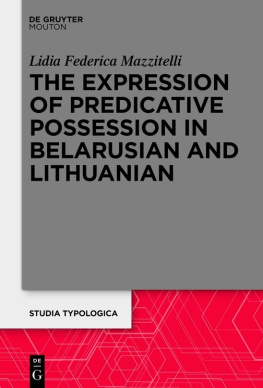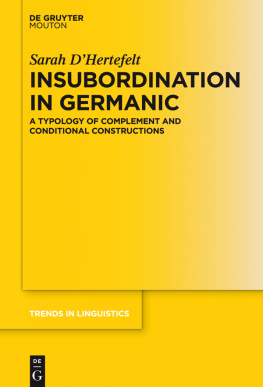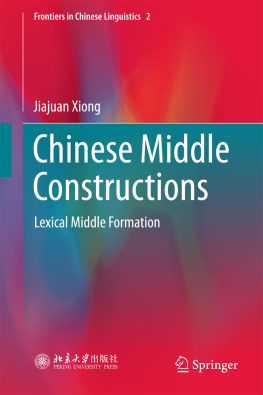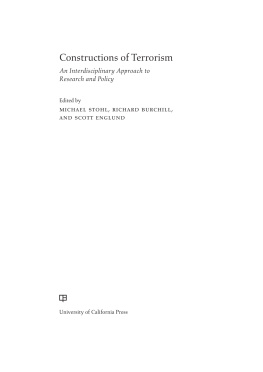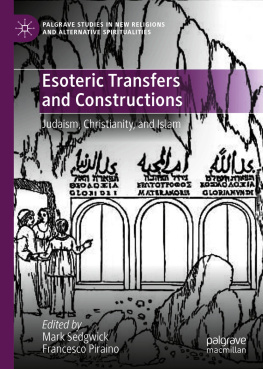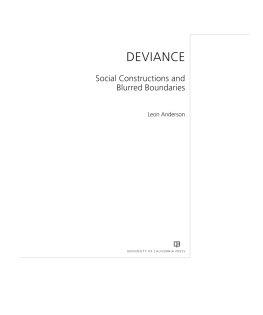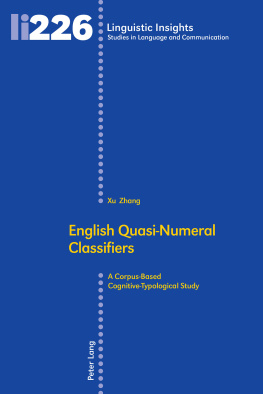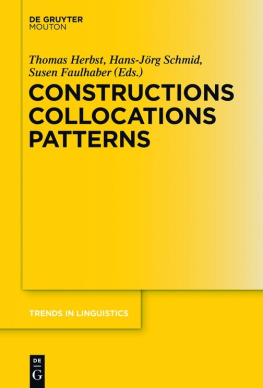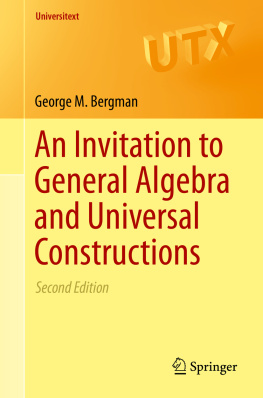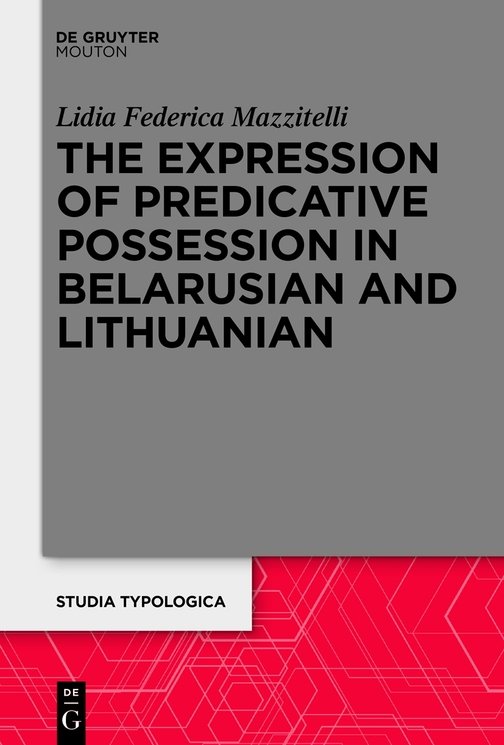Questionnaires
As I have said in the previous chapters, this work is based mainly on a corpus study. However, I also presented a questionnaire to native speakers of Belarusian and Lithuanian, in order to test the degree of (un)grammaticality of the constructions I have examined during my work.
The questionnaires have been prepared by extrapolating some sentences from the corpus and modifying them, in order to obtain the constructions I wanted to test. An example of this method is presented in the following example. I choose in the corpus a sentence, which is an instance of inanimate possession being expressed through the verb mec have:
In the questionnaire, this sentence appears as follows:
In this way, I could verify the acceptability of u + GEN in this particular context (locative relations implying spatial inclusion: the possessee is located within the possessor).
Sometimes, in order to obtain the constructions I wanted to test, I had to build the examples myself, without taking them from the corpus. In this case, I had my examples checked by native speakers (who did not complete the questionnaire), in order to be sure that, apart from the construction to test, there would be no mistakes or inappropriate expressions that might have distracted the informants from the real focus of the example. In the following, such examples are marked with an asterisk
When presenting the questionnaires to the native speakers, I asked them to read the sentences and to highlight all the mistakes, or simply the unusual formulations they might observe. I also asked them to propose a correct variant of the wrong constructions they might have found. In the cases, where the informants have remarked nothing, I have interpreted this as the evidence, that the construction is probably grammatical. However, the possibility that some ungrammatical constructions went unnoticed by native speakers cannot be excluded.
In the following, the questionnaires that I proposed to the informants are presented. In the original version, the sentences were divided into two questionnaires that were distributed to two groups of informants. Each informant completed only one questionnaire. Below are also presented the alternative constructions the informants proposed whenever they thought that the sentence in the questionnaire was unacceptable. As the number of informants, who have compiled the questionnaire, varies (not everyone completed the whole questionnaire), the number of informants who have evaluated every example is given as well.
In the following, the examined constructions are highlighted with bold characters; in the original version, of course, there was no evidence. In the questionnaires, there were also sentences with no possessive constructions: they had been included in order to distract the native speakers, so that they could not understand the topic of the questionnaire, inciting them to feel freer while compiling it. Here, these sentences are not reported.
The sentences below are disposed along the schema presented in 8.1; obviously, in the real questionnaires, they were in random order.
A. Belarusian questionnaire
OWNERSHIP
PR: [+human] PE: [human]; [abstract]; [+ alienable] Possessive relation: [+permanent]
i) Dative case
- (1) My zatra i vernemsja, zamolju taksoku, sto kilametra usjaho dva baki. A tam na vyspe mne dom We will come back tomorrow, I will call a taxi, it is just a hundred kilometers, there and back. And there, on the island, I have a house [lit. me.DAT (is) a house ] Corrected to: 6 informants (out of 8): u mjane dom [lit. at me (is) house] 1 informant (out of 8): a tam moj dom! and there my house!
- (2) Hta davoli istotnaja prablema pry vyvunni zamenaj movy belaruskamonyja ljudzi ascej za us vymuanyja karystacca movaj-pasjardnicaj ruskaj. Dzjakavac lsu , nam uo sc njamecka-belarusi, anhlijska-belaruski, polska-belaruski, ukrainska-belaruski sloniki dyj kolki inych.
This is quite a serious problem. When they want to learn a foreign language, Belarusian-speaking people often have to use an intermediate language, Russian. Thanks to fate, we already have [lit. us.DAT already is ] a German-Belarusian, an English-Belarusian, a Polish-Belarusian, an Ukrainian-Belarusian dictionary, and some more.
Corrected to:
5 informants (out of 9): u nas uo sc [lit. at us already is]
3 informants (out of 9): maem uo [lit. we already have] or u nas uo sc [lit. at us already is]
2 informants (out of 9): maem uo [lit. we already have]
ii) Z + INS
- (3) U 50-ja hady se bahatyja Italijcy byli z tryma chatami : adna harach, druhaja na mory, a trecjaja horadze
(*) In the fifties, all rich Italians had three houses [lit. were with three houses ]: the one in the mountains, another at the seaside, and a third in the town.
Corrected to:
3 informants (out of 10): meli pa try chaty [lit. they had three houses]
INALIENABLE POSSESSION
PR [+human]; PE [human]; [alienable]; [+body-part]; [+modified]
i) Dative case
- (4) Nasta maja staraja sjabroka, ja sa koly. U naym klase se liyli jae pryhaunjaj. j byli svetlyja valasy, blakitnyja voy ...
(*) Nasta is an old friend of mine, from my school years. In our class, all considered her to be a beauty. She had [lit. she.DAT were ] blond hair, blue eyes ...

